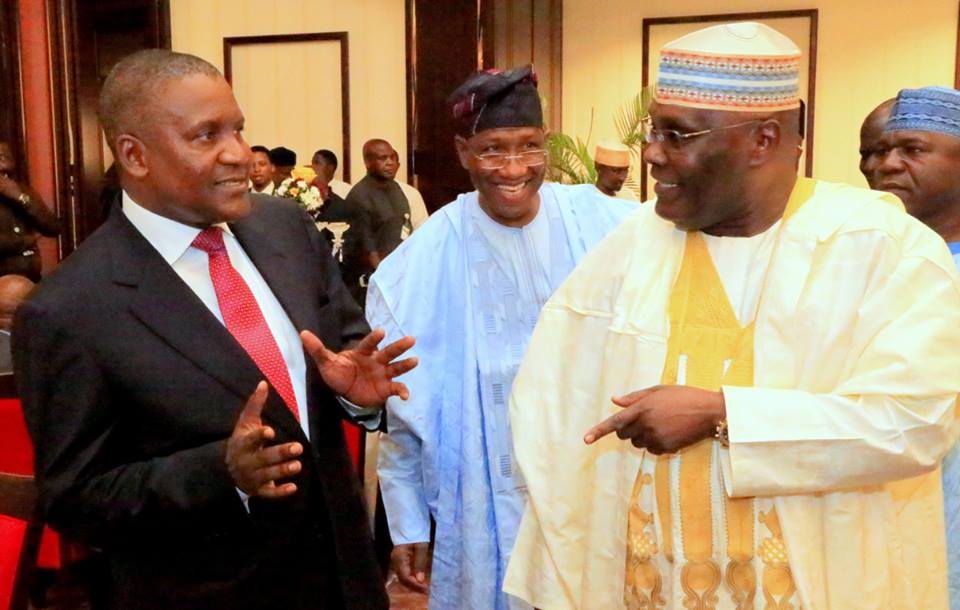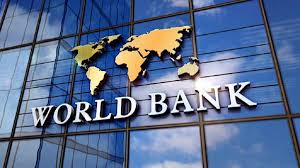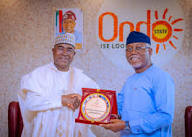
Former Vice President Atiku Abubakar and industrialist, Aliko Dangote at the weekend warned that the northern region risks deeper insecurity, economic stagnation and social collapse unless it urgently resets its development priorities and rebuilds unity.
Speaking at the Arewa Consultative Forum (ACF) 25th anniversary dinner in Kaduna, Atiku said the North cannot afford complacency at a time when insecurity, poverty and educational decline are crippling its future.
He cautioned that without a clear vision and collective resolve, the region would “stagnate and sink deeper into insecurity.”
The former vice president praised past ACF leaders for sustaining the body through “thick and thin”. But, he insisted, nostalgia must give way to honest assessment and strategic action.
He recalled how, upon assuming office in 1999, he led efforts to unify the region’s divided political blocs through a reconciliation committee chaired by the Emir of Ilorin, Ibrahim Sulu-Gambari a process that birthed the modern ACF.
Atiku stressed that the forum was conceived not only to foster political harmony, but to drive development in line with the vision of Sir Ahmadu Bello.
He cited the Sardauna’s 1961 priorities education, agriculture and industrial growth noting that they remain more urgent today than ever.
He outlined past initiatives such as the Northern Education Project, which exposed the region’s crumbling school system and triggered reforms that boosted enrolment and transition rates.
He also referenced the Northern Development Project, NDP, which sought to rebuild agricultural value chains and address climate-induced productivity challenges. Yet, he lamented that key obstacles from energy poverty to multiple taxation still plague northern industries two decades on.
Warning that diversity was becoming a weapon in the hands of adversaries exploiting fear and disinformation, Atiku urged the North to emulate countries like India and China, which have achieved economic transformation despite vast pluralism.
He challenged northern leaders to confront questions of population growth, food security, education, jobs and the region’s readiness for a knowledge-driven global economy.
“If ever there was a moment for the North to come together, that time is now,” he said.
Also speaking at the event, Africa’s richest man, Alhaji Dangote, linked the North’s slow economic growth and rising insecurity to decades of policy inconsistency and chronic electricity shortages.
He said many promising northern industries collapsed because government policies “kept shifting the goalpost,” eroding investor confidence.
He recalled commissioning Arthur Andersen (now part of KPMG) to study why northern textile magnates and other industrialists failed despite strong starts.
The findings, he said, pointed largely to unpredictable government policies and an unreliable power supply. Dangote disclosed that his group connects to public electricity only in South Africa and Ethiopia, because of Nigeria’s unstable grid.
“Without electricity, you cannot have growth, no matter how hard you try,” he warned.
He added that today’s insecurity banditry, youth joblessness and economic displacement is a direct consequence of long-standing neglect.
Dangote urged northern leaders to commit to a coherent, long-term economic roadmap anchored on education, industry and agriculture, aligning with the transformation agenda highlighted by Atiku.
He noted that the North has the landmass and population to become West Africa’s food hub, but remains far from realising that potential due to poor planning and inconsistent investment.
He cautioned that unless urgent steps are taken, the crises confronting the region “will consume everyone, whether guilty or not”.
Despite the celebratory tone of the ACF’s silver jubilee, both leaders stressed that the anniversary should serve as a wake-up call.
Their message was clear: the North stands at a defining moment and failure to act could prove costly.
John Shiklam



